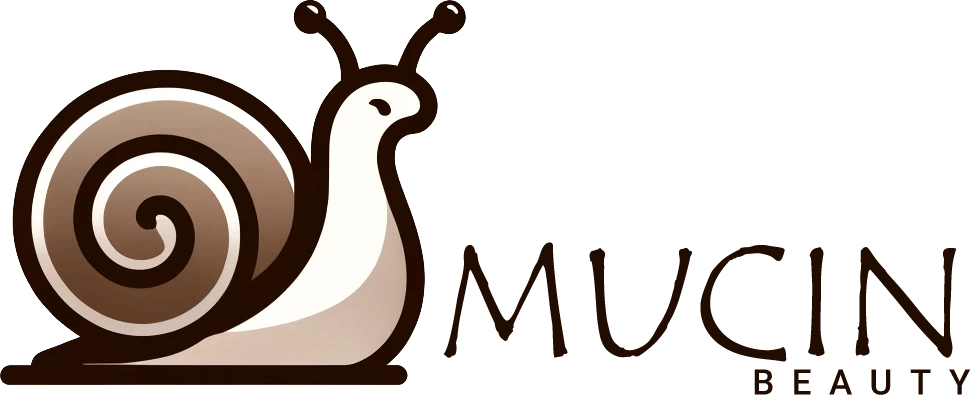In our fast-paced world, the health of our skin is constantly challenged by factors like pollution, stress, and sun exposure. These elements can accelerate the aging process and increase the risk of skin damage, emphasising the need for effective skincare solutions. Antioxidants stand out as powerful defenders in this ongoing battle. These potent molecules not only fight against environmental aggressors but also play a crucial role in maintaining the skin’s youthfulness and resilience. This comprehensive guide will explore the science of antioxidants, uncover the most beneficial types to include in your skincare regimen, and offer practical tips on how to maximise their protective and restorative powers. Whether you’re looking to enhance your daily skincare routine or understand the deeper mechanisms at play, this exploration will arm you with the knowledge to make informed choices for healthier, radiant skin.
What Are Antioxidants?
Antioxidants are molecules that inhibit the oxidation of other molecules. Oxidation is a chemical reaction that can produce free radicals, leading to chain reactions that may damage cells. In the context of skin health, antioxidants play a pivotal role by neutralising free radicals generated by UV exposure, pollution, and other environmental stressors. This protective action helps prevent premature ageing and maintains the structural integrity of the skin.
How Do Antioxidants Prevent Skin Damage?
The skin is the largest organ of the body and a primary defence mechanism against environmental damage. It naturally contains antioxidants such as vitamin E and vitamin C; however, these antioxidants are rapidly depleted when the skin is exposed to UV light, pollution, or harmful chemicals.
- Neutralising Free Radicals: When skin is exposed to UV light, the body produces free radicals. These unstable atoms can cause damage to cells, proteins, and DNA. Antioxidants neutralise free radicals by donating an electron, thus preventing them from causing cellular damage.
- Enhancing Skin Repair and Reducing Signs of Ageing: By reducing the burden of damage, antioxidants allow the skin to repair itself and correct visible damage. Vitamin C, for example, is not only an antioxidant but also essential for the production of collagen, a protein that helps keep the skin firm and plump.
- Strengthening Skin’s Natural Defences: Antioxidants like vitamin E are vital in protecting the skin’s lipid barrier, enhancing its ability to retain moisture and resist infection. This strengthening of the skin’s barrier helps keep it hydrated, supple, and more resistant to environmental damage.
“Antioxidants help with scavenging free radicals in the skin that cause cellular damage and inflammation,” she says. “Routine antioxidant usage may help reduce cellular damage and inflammation that leads to skin cancer formation and signs of aging.”
Dr. Julia Tzu, MD, FAAD, Founder and Medical Director of Wall Street Dermatology

Practical Tips for Incorporating Antioxidants in Skincare
To harness the full potential of antioxidants, consider the following practical tips:
Choose the Right Antioxidants
Understanding the unique benefits of each antioxidant can help you choose the most effective ones for your specific skin concerns. Here’s a closer look at some of the key antioxidants mentioned in our guide:
- Vitamin C: A powerhouse in skin health, Vitamin C is celebrated for its ability to stimulate collagen production, fade pigmentation, and provide potent photoprotection against ultraviolet (UV) rays. Its antioxidant properties make it essential for repairing damaged skin and preventing future signs of aging.
- Vitamin E: This antioxidant is crucial for maintaining the skin’s barrier function and lipid balance. Vitamin E works synergistically with Vitamin C, enhancing its stability and efficacy. It’s especially beneficial for dry or aging skin as it helps to moisturise and heal.
- Retinoids (Vitamin A): Known for their profound anti-aging effects, retinoids accelerate cell turnover, stimulate collagen production, and help to smooth fine lines and wrinkles. They are particularly recommended for acne-prone or photo-damaged skin due to their ability to refine skin texture and tone.
- Green Tea Extract: Rich in epigallocatechin gallate (EGCG), green tea extract provides powerful anti-inflammatory benefits. It reduces redness, swelling, and irritation, making it ideal for sensitive or inflamed skin conditions. Its antioxidant properties also help protect against environmental damage.
Each of these antioxidants is selected based on its specific action mechanism and targeted benefits, providing tailored solutions for various skin types and concerns.
“One study showed that daily use of a vitamin C formulation for at least three months improved the appearance of fine and coarse wrinkles of the face and neck, as well as improved overall skin texture and appearance.”
Harvard Health
Incorporate Antioxidants into Your Daily Routine
- Morning Protection: Apply a serum containing vitamins C and E in the morning to protect your skin throughout the day. Follow with a broad-spectrum sunscreen to maximise protection against UV radiation.
- Evening Repair: Use products with retinoids or green tea extract in the evening. These antioxidants work overnight to repair daily damage and rejuvenate the skin.
Opt for Quality Products
When selecting antioxidant-rich skincare products, opt for those housed in opaque, air-restricted containers to prevent oxidation. Ensure the product is from a reputable brand with a proven track record of quality and efficacy.
Adjust Your Diet
Besides topical applications, incorporate foods rich in antioxidants into your diet to support skin health from the inside out. Berries, nuts, dark green vegetables, and green tea are excellent sources of antioxidants.
Stay Hydrated and Avoid Smoking
Hydration is crucial for maintaining skin elasticity and overall health. Drink plenty of water daily. Additionally, avoid smoking, which is known to deplete skin antioxidants more rapidly and is a major contributor to premature skin ageing.
In conclusion…
Antioxidants are vital in maintaining skin health and appearance, offering protection against environmental damage and aiding in repair and rejuvenation. By understanding the types of antioxidants and how to incorporate them into your skincare regime and diet, you can significantly enhance your skin’s resilience and vitality. Remember, consistency is key in skincare; regular use of antioxidant-rich products in conjunction with a healthy lifestyle will yield the best results.

DIY Antioxidant Skincare Recipes
Enhance your skin health with natural, easy-to-find ingredients. These DIY skincare recipes harness the power of natural antioxidants and can be made with items you likely already have at home:
1. Honey and Green Tea Face Mask
Ingredients:
- 1 tablespoon green tea (cooled down after steeping)
- 2 tablespoons raw honey
- 1 teaspoon lemon juice (optional, for additional brightening effect)
Instructions:
- Brew a small cup of green tea and let it cool.
- Mix the cooled green tea with raw honey and lemon juice until you achieve a consistent paste.
- Apply the mixture to your face, avoiding the eye area.
- Leave the mask on for 15-20 minutes before rinsing off with warm water.
2. Oatmeal and Turmeric Antioxidant Scrub
Ingredients:
- 2 tablespoons ground oatmeal
- 1 teaspoon turmeric powder
- 1 tablespoon plain yogurt (or milk for a vegan option)
Instructions:
- Combine the ground oatmeal and turmeric powder in a bowl.
- Add the yogurt or milk and mix to form a paste.
- Apply to your face in gentle circular motions to exfoliate the skin.
- Leave it on for about 10 minutes, then rinse off with warm water.
3. Avocado and Vitamin E Moisturising Mask
Ingredients:
- 1 ripe avocado
- 1 tablespoon olive oil
- Capsule of Vitamin E (pierce and squeeze out the contents)
Instructions:
- Mash the ripe avocado in a bowl until it’s smooth.
- Mix in the olive oil and the contents of one Vitamin E capsule.
- Apply the mixture to your face and leave on for 20-25 minutes.
- Rinse off with warm water for hydrated, glowing skin.
These simple, natural recipes are rich in antioxidants and provide a variety of skin benefits without the need for specialised ingredients. Enjoy crafting these at home for a fun and effective addition to your skincare routine!
Images by Dall-E


